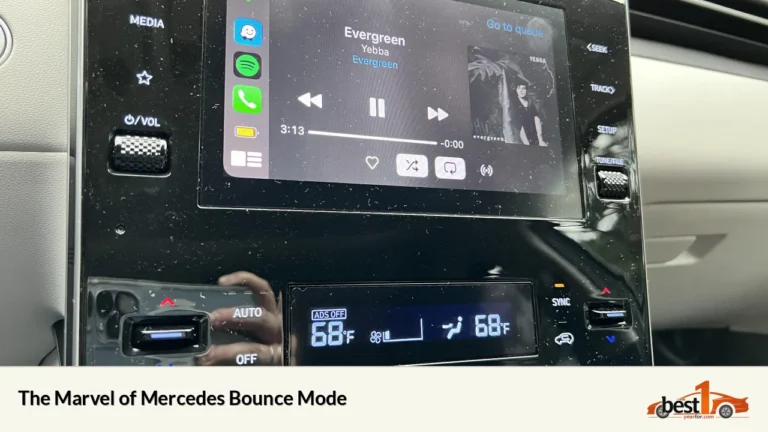The Dodge Stratus was a midsize sedan produced from 1995 to 2006 over two generations. While it had some strong points like spacious interiors and attractive styling, reliability was inconsistent across model years. Based on owner reviews and reliability data, the 2000 and 2004 model years tend to be considered the best for the Dodge Stratus[1][2].
| Best Years | Worst Years |
|---|---|
| 2000, 2004 | 2002, 2003, 2005 |
Overview of Dodge Stratus Generations

The Dodge Stratus was produced over two distinct generations:
First Generation (1995-2000):
- Offered only as a 4-door sedan
- Part of Chrysler's "cab-forward" design philosophy
- Available engines: 2.0L I4, 2.4L I4, 2.5L V6
- Praised for roomy interior and attractive styling
Second Generation (2001-2006):
- Offered as sedan and coupe (coupe based on Mitsubishi platform)
- Sedan used Chrysler engines, coupe used Mitsubishi engines
- Available engines: 2.4L I4, 2.7L V6 (sedan), 2.4L I4, 3.0L V6 (coupe)
- Refreshed styling in 2004[3]
Why 2000 is Considered One of the Best Years
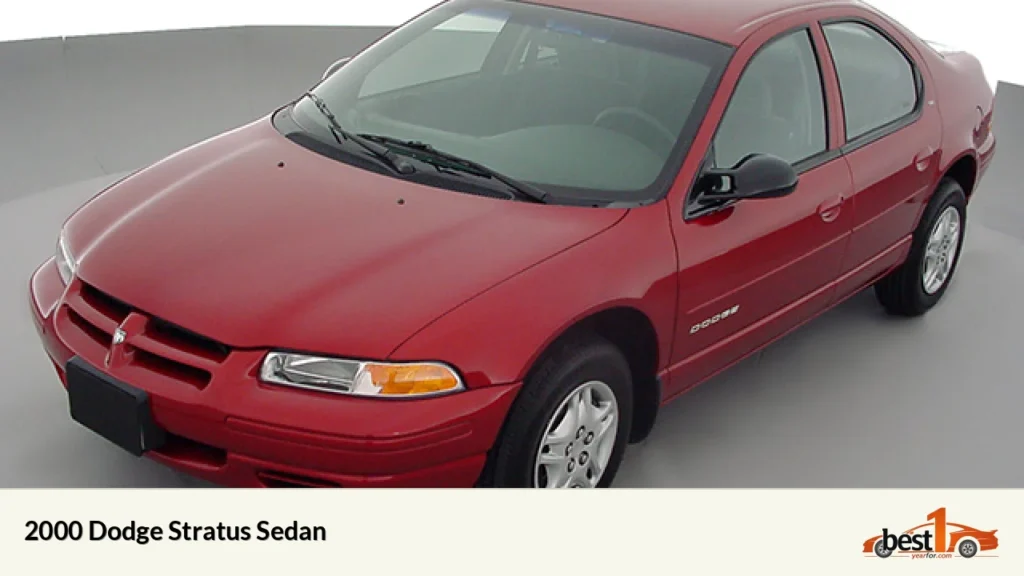
The 2000 model year is frequently cited as one of the best for the Dodge Stratus for several reasons:
- Refined design: As the final year of the first generation, the 2000 model benefited from 5 years of incremental improvements and refinements[1].
- Reliability: Owners report fewer mechanical issues compared to later model years, particularly with the 2.4L engine[2].
- Value: As a used car, the 2000 Stratus offers a good balance of features and affordability.
- Spacious interior: The cab-forward design provided ample passenger space, a hallmark of this generation[5].
- Smooth ride: Many owners praise the comfortable ride quality of the 2000 model[6].
Advantages of the 2004 Model Year
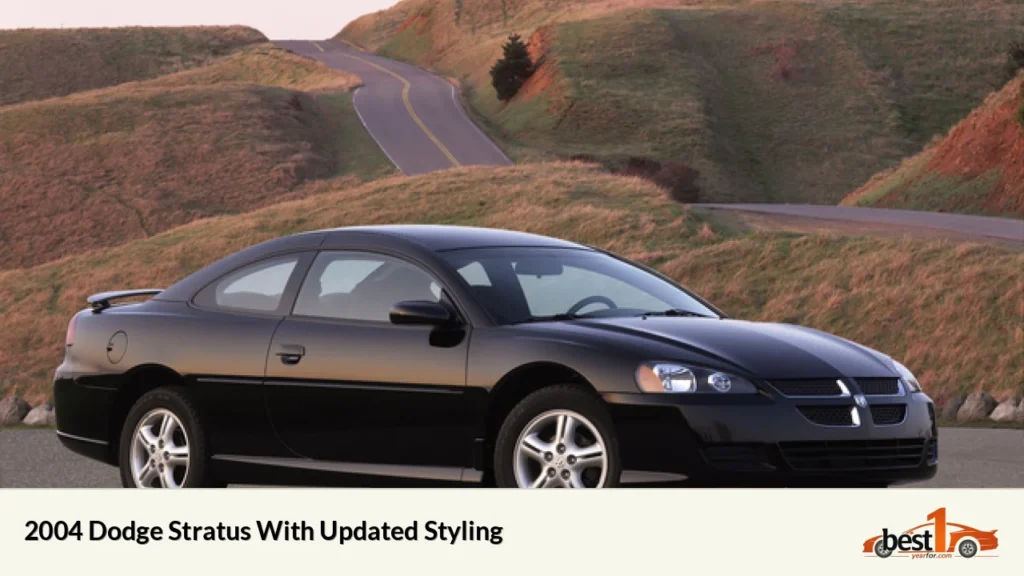
The 2004 model year is also considered one of the best for the Dodge Stratus:
- Refreshed styling: The 2004 model received updated exterior and interior design, giving it a more modern look[3].
- Improved features: New additions included steering wheel-mounted audio controls and an auto-dimming rearview mirror.
- Refined powertrains: By this point, many of the earlier engine and transmission issues had been addressed[2].
- Better build quality: The second generation generally saw improvements in overall build quality and fit-and-finish[4].
- Safety upgrades: Traction control became available when paired with ABS, improving safety in adverse conditions.
Common Issues to Watch For
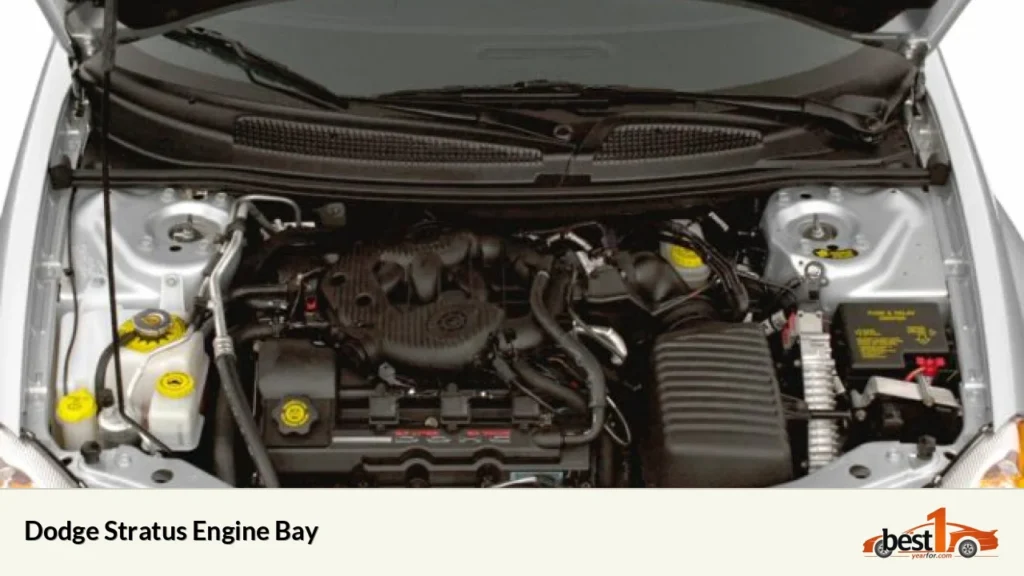
While the 2000 and 2004 model years are generally considered the best, potential buyers should still be aware of some common issues:
- Engine problems: Some owners report issues with the 2.7L V6 engine, particularly in 2001-2003 models.
- Transmission failures: Automatic transmissions in some model years are prone to premature failure[2].
- Electrical issues: Problems with the alternator, starter, and other electrical components are not uncommon.
- Suspension wear: Front suspension components may wear out faster than expected.
- Oil sludge: Some engines are prone to oil sludge buildup, particularly if regular oil changes are neglected.
Maintenance Tips for Longevity
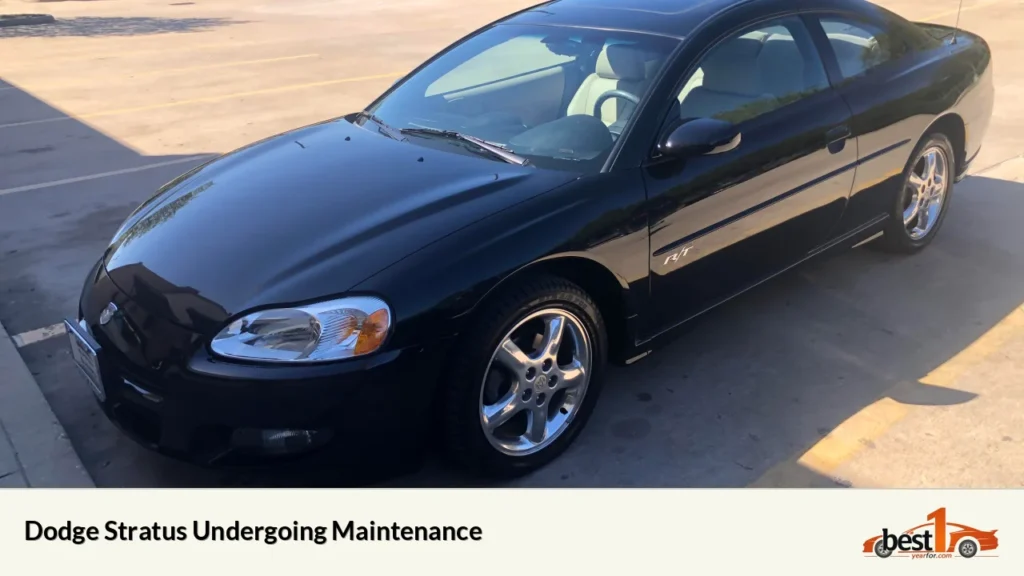
To keep a Dodge Stratus running reliably, regardless of model year, consider these maintenance tips:
- Regular oil changes: Stick to the recommended oil change intervals to prevent engine sludge buildup.
- Transmission care: Regular fluid changes can help prolong transmission life.
- Cooling system maintenance: Keep the cooling system in good condition to prevent overheating issues.
- Suspension inspections: Regular checks of suspension components can catch wear before it leads to more serious problems.
- Address issues promptly: Don't ignore warning lights or unusual noises; addressing problems early can prevent more costly repairs later.
Comparing the Stratus to Competitors
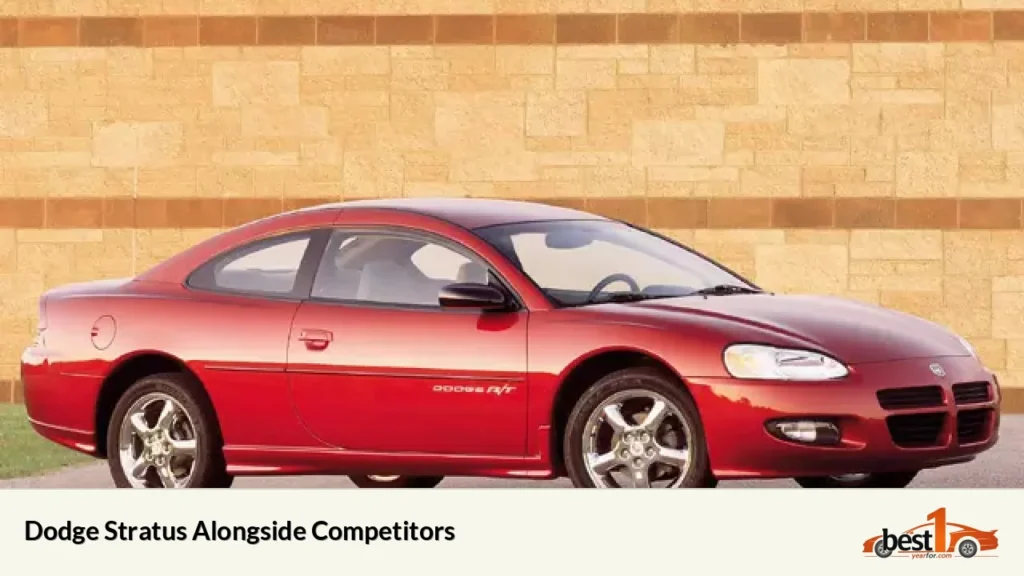
When considering a used Dodge Stratus, it's worth comparing it to contemporary competitors:
- Honda Accord: Generally offers better reliability and resale value.
- Toyota Camry: Known for excellent longevity and low maintenance costs.
- Ford Taurus: Similar in size and price, but with different styling and driving characteristics.
- Chevrolet Malibu: Comparable in many aspects, but reliability can vary by model year.
- Nissan Altima: Often praised for sportier handling and robust powertrains.
While the Stratus may not match the top Japanese brands in overall reliability, it often offers more features for the price in the used car market.
FAQs
- What is the best year for the Dodge Stratus?
The 2000 and 2004 model years are generally considered the best, offering a good balance of reliability, features, and value. - How long do Dodge Stratus cars typically last?
With proper maintenance, a Dodge Stratus can last 150,000 to 200,000 miles, though individual experiences may vary. - Is the Dodge Stratus a reliable car?
Reliability varies by model year, with the 2000 and 2004 models generally considered more reliable than other years. - What are common problems with the Dodge Stratus?
Common issues include engine problems (particularly with the 2.7L V6), transmission failures, and electrical issues. - How does the Dodge Stratus compare to its competitors?
While it may not match the top Japanese brands in reliability, the Stratus often offers more features for the price in the used car market.
Citations:
- 1. https://www.edmunds.com/dodge/stratus/2000/review/
- 2. https://www.cars.com/research/dodge-stratus-2002/consumer-reviews/
- 3. https://en.wikipedia.org/wiki/Dodge_Stratus
- 4. https://www.kbb.com/dodge/stratus/2004/
- 5. https://www.edmunds.com/dodge/stratus/2001/review/
- 6. https://www.cargurus.com/Cars/2000-Dodge-Stratus-Reviews-c1340





